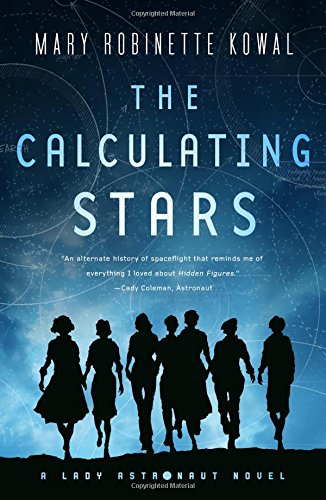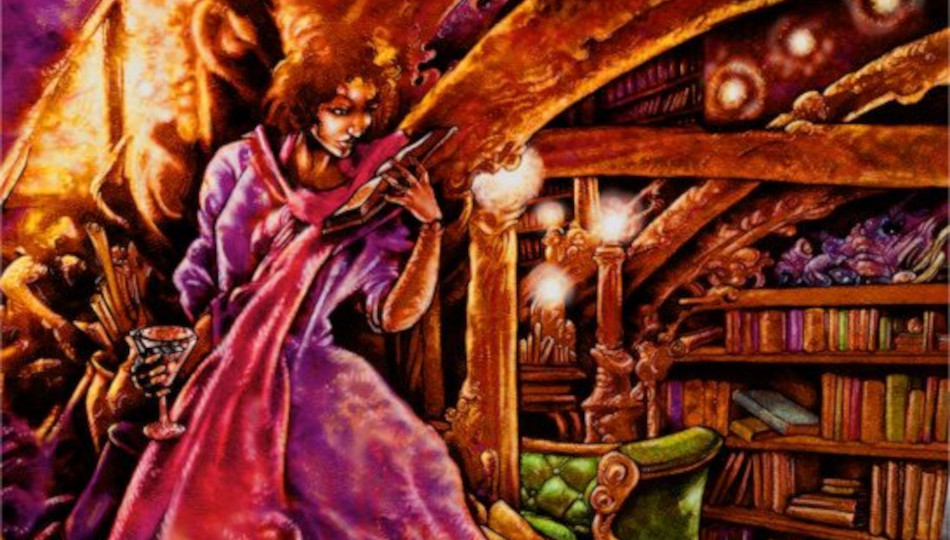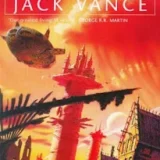
Some people think that all I do with this column is review books, TV shows, and movies. Well, I do, but that’s not all I do. When I started this column back in the pre-Internet days (I wrote the fan column for a couple of years in the ‘80s), I was the fan columnist—but we didn’t call it “The Clubhouse,” as in Graeme Cameron’s version. I called it “Fans, Prose, and Cons” as a three-way pun; I’m sure you can figure it out (I also did convention reviews) and other fannish stuff. But in this incarnation, Steve Davidson, our Fearless Leader, pretty much gave me free rein, for which I’m grateful. So, in the spirit of the bully pulpit, I’m going to postpone the original column I had scheduled for this week—I hope Gordon Van Gelder will forgive me for having the last 2021 F&SF review appear in 2022—and talk about a subject that’s near and dear to my heart, as the New Year approaches.
I was reading a column by Kris Rusch (Kristine Kathryn Rusch, wife of my good friend Dean Wesley Smith) in Eric Flint’s Grantville Gazette, No. 60 (2015), about how people were saying that SF was sexist with little representation for women in art, editing, writing, etc., and it got me thinking about my early exposure to SF and fandom. And then about fandom as it relates to people in general, and it hit me: for a large number of fans (fen, we used to call us), fandom is about alienation. I started reading SF literally in pre-school, and kept reading it all the way through high school and today, not because it was an escape, as people kept saying, but because of alienation. My alienation from my age peers had several factors: as a pre-teen, I lived in Florida, where I was a “damnyankee” (one word); I was a better reader (and therefore “smarter”) than many of my peers through grade school, junior high and high school—but I was lucky: we moved to an area where our high school had “regular” classes, “challenge” classes for those who were a bit advanced over the regular classes, and (I think, memory’s a bit spotty) “honors” (sic) classes. (I’ve used Canadian spellings for over 35 years, just FYI.)
So I lucked out; I had a peer group of bright students who—although there were the ususal little cliques—wouldn’t bully or denigrate each other; we shared classes and homework, etc. And I found other SF fans, like Darrell Wilcox and John Meeker, within the larger group. Many other fans weren’t as lucky as I. Within fandom, there are fans who were ostracized growing up (or as adults) because they were fat, thin, gay, tall, short, male, female, gender fluid or undecided, ethnic—literally any ethnicity could come under attack—spoke a different language, wore different clothing, poor, and so on. We were all alienated!
I don’t know how many of my readers felt a sense of relief and belonging when they first found organized fandom (okay, that’s somewhat of an oxymoron, but we’ll let it go for now), and discovered there were other people like them. If you were like me, you jumped in with both feet, whatever your fandom, looking for close friends, associations, fellow nerds or whatever! Heck, I organized a “class” at Washington State University’s “Free University” (said “Free U” organized by Professor Paul Brians) to “teach” science fiction, just to draw fellow readers out of the woodwork—and this was at a major agricultural university with another only seven or eight miles away! I met fans who are, even now—forty or so years later—lifelong friends, no matter how far away they live. I also started a fanzine and a local club, and organized a convention. (And became Amazing Stories’ fan columnist!)
I assume most of you have a similar story. But there’s a subtext and a side note to my (and Kris Rusch’s, if you read behind the words) story—from its earliest beginnings in the 1930s, fandom has had fannish feuds. Today, there are groups of fans (“Sad Puppies,” anyone?) who are fighting and denigrating other fans; there are feuds and people being unkind to other fans because they’re fat, thin, white, non-white, gay, straight, LBGTQ+, cisgender, gender fluid, binary, non-binary, male, female, fantasy fans, SF fans, Trek fans, Star Wars fans, und so weiter. In other words, we fen are deliberately alienating our fellow fen!
What is wrong with us? Why can’t we just, in the words of Paul McCartney, let it be? Starting tomorrow, it’s a whole new year… can’t we just end the alienation? Unless someone has done you a real wrong, can’t you forgive and forget—and maybe, even if they have, you could forgive? I’m pleading with all of you—and myself, truth be told—to end the alienation, the discrimination, and all that other stuff. After COVID has been tamed, and we’re going to cons again, do what I have done at cons for years—go up to someone you’ve never met—especially if they look alienated in some way—and introduce yourself. Talk to them, get to know them. You might end up liking them or not, but you will have ended one little piece of that alienation.
Okay, end of sermon. I want to wish you all the happiest of New Years—even if you celebrate some different New Year, like Ukrainian, or Chinese, or whatever—and hope for you (and everyone else) a better 2022 than any previous year. Hey! We’ve got some terrific books, movies, writers, and other stuff coming up in 2022—I’m looking forward to it, and I hope you are too!
What do you think? You can tell me right here, or on Facebook, or even by email (stevefah at hotmail dot com). All comments are welcome! (Just be polite, please.) My opinion is, as always, my own, and doesn’t necessarily reflect the views of Amazing Stories or its owner, editor, publisher or other columnists. See you next time!
Steve has been an active fan since the 1970s, when he founded the Palouse Empire Science Fiction Association and the more-or-less late MosCon in Pullman, WA and Moscow, ID, though he started reading SF/F in the early-to-mid 1950s, when he was just a sprat. He moved to Canada in 1985 and quickly became involved with Canadian cons, including ConText (’89 and ’81) and VCON. He’s published a couple of books and a number of short stories, and has collaborated with his two-time Aurora-winning wife Lynne Taylor Fahnestalk on a number of art projects. As of this writing he’s the proofreader for R. Graeme Cameron’s Polar Borealis and Polar Starlight publications. He’s been writing for Amazing Stories off and on since the early 1980s. His column can be found on Amazing Stories most Fridays.









